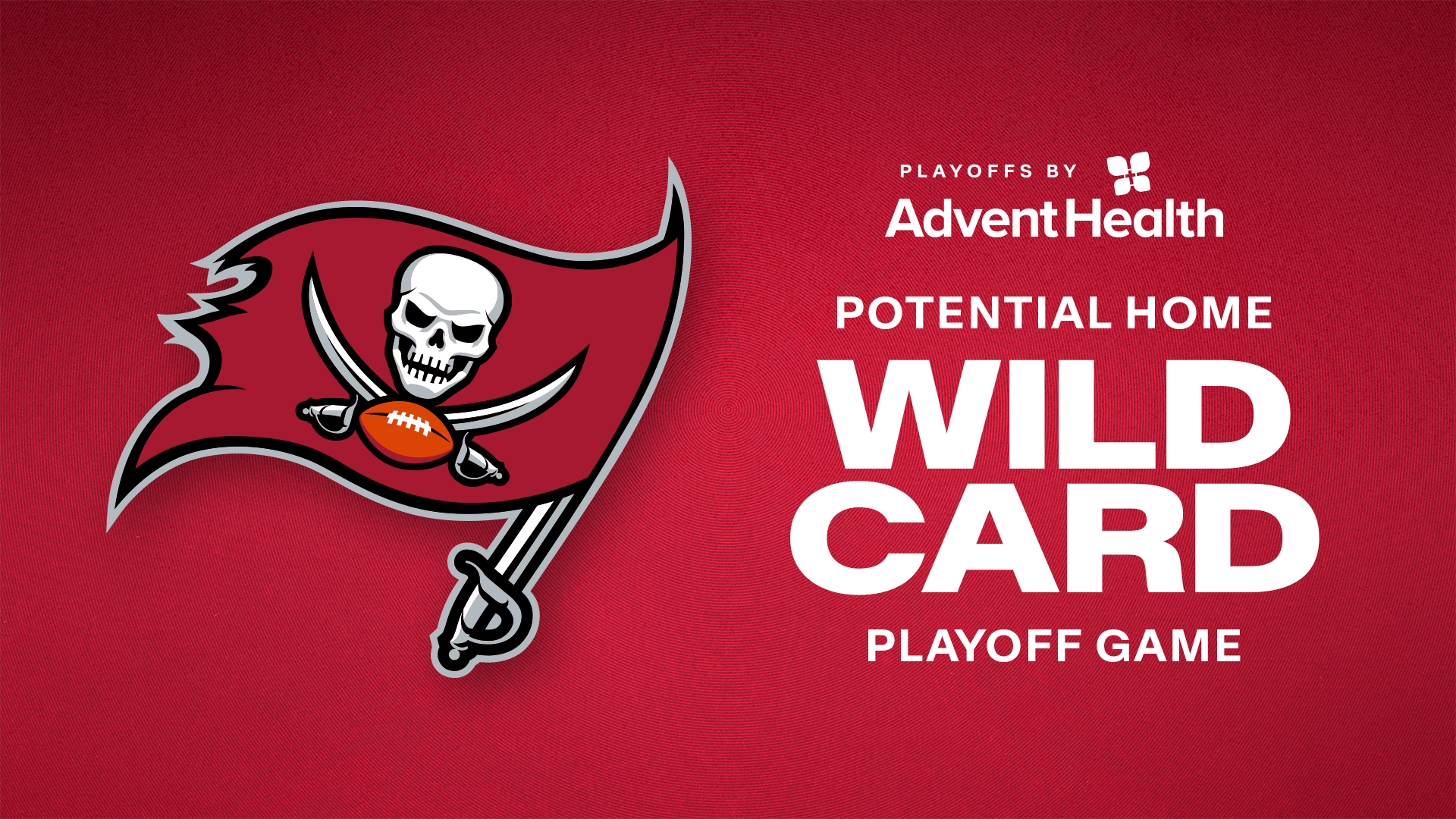Last November's win over Washington was certainly a thrilling contest...was it one of the Bucs' five greatest games of the last decade?
(Note: The following story was featured in Volume 1, Issue 2 of Buccaneers Review, the Tampa Bay Buccaneers' ground-breaking new game program. Buccaneers Review has reinvented the game program with magazine-style presentation, in-depth and current analysis of both teams and dozens of pages of fresh content every issue. On Sunday, the Buccaneers will give a free copy of Buccaneers Review to every ticket holder who attends the season opener against the Baltimore Ravens.)
They are the ones you still talk about. The ones that keep you coming back for more.
When they're over, you find yourself stumbling out of Raymond James Stadium in a happy daze, or dancing unashamedly around your living room furniture. You've saved the clippings, taped the highlights and committed the biggest plays to memory.
They are the great ones, the most memorable games in a sport that produces outsized drama every Sunday. The ones that turn a team around, or prove its worth against "superior" talent, or simply make you forget any other disappointments of the season for a little while.
You know what we're talking about. You remember Derrick Brooks forcing Ahman Green to fumble and Chidi Ahanotu recovering to set up Martin Gramatica's go-ahead field goal. You may even remember the date: November 12, 2000. Heck, just about any Bucs-Packers game in Raymond James Stadium from 1998 through 2002 was a thriller.
Or how about the Bucs falling behind 15-0 in their inaugural game at Raymond James Stadium on September 20, 1998? Do you remember Dave Moore reaching out with one hand, all alone down the right sideline, to haul in an apparently overthrown TD pass, sparking a 27-point comeback in a 27-15 victory? Of course you do! Nice opening, RayJay!
Those are the games we're talking about, the highest peaks in a decade full of drama and success. Our goal is to pick the very best from among those great games.
Our goal, to be exact, is to name The Five Greatest Buccaneer Games of the Last Decade.
The Bucs' current era of success can be traced back to the second half of 1996, as the sweeping changes put in motion by new ownership began to take effect. After an 0-5 start, Tampa Bay won six of its 11, germinating hope that sprung full-bloom from the ground with the memorable 5-0 start of 1997. Since then, the Bucs have had six playoff seasons, three division titles, two NFC Championship Game appearances and one Super Bowl victory. We're going to identify the greatest afternoons – and in some cases evenings – during that run.
A few ground rules.
- We are considering regular-season games only. Otherwise the playoffs of 2002 would pretty much dominate the list. These are the games that got the Bucs there. 2. We are considering only Buccaneer victories. Yes, there have been some thrilling games that went the other way, but do you really consider them among your fondest Buc memories? Let the Colts reminisce about Monday night in 2003, and let the Raiders keep fond memories of that one-week aberration in 1999. 3. Context is very, very important. The Bucs' 35-0 crushing of Cincinnati to end the 1998 season was entertaining, but it failed to win Tampa Bay a playoff berth thanks to an Arizona victory later that day. Great games are made greater by their overall importance to a playoff run. 4. Context, on the other hand, isn't everything. There are few regular-season games in Buc history more important than the 15-0 road win over the Bears in the 2002 season finale, but that game featured two back-up quarterbacks, five field goals and a lot of sloppy play. On the flip side, there are two games in the ensuing top five that did not belong to playoff seasons, the lesson being that a great game is sometimes too great to ignore.With that, we present to you, in reverse order, The Five Greatest Buccaneer Games of the Last Decade.
5. September 8, 2003: Bucs 17, Eagles 0.
We start off with a contest unlike any of the others on the list. It was neither particularly close nor ultimately important to a playoff race. It was, in fact, the season opener to a 6-10 season.
But when was the last time you woke up on the morning after a game and felt better about the Buccaneers than on the Tuesday morning that followed this Monday Night Football extravaganza?
The Bucs were defending Super Bowl champions, the jewel that is always featured on the opening weekend of the next season. And yet the deck was stacked against the champs. The opponent was Philadelphia, the team the Bucs beat in the previous NFC Championship Game, the game that blew up Veterans Stadium. The location was not Tampa but the Eagles' gleaming new replacement for the Vet, Lincoln Financial Field. Emotions were running high in Philly.
There were fireworks. There was a laser display over a darkened stadium. There was even Sly Stallone leading a cheer. "I've never seen a pregame like that," Bucs Coach Jon Gruden said. "This place was juiced."
The Linc threatened to boil over early in the fourth quarter when, four minutes into the game, the Eagles had a first-and-goal at the Bucs' one. The ensuing moments would set the tone for the game, but not in the way the Eagles expected. After three marvelous stops by the Bucs' defense, the Eagles brought out their field goal unit but holder/quarterback Koy Detmer pulled up and threw a pass to tight end L.J. Smith, who dropped it.
After that goal-line stand, the Bucs allowed only three first downs and no points before halftime, making Martin Gramatica's 23-yard field goal stand up. The second half turned into the Joe Jurevicius Show.
Twelve minutes into the second half, Brad Johnson lofted a fade pass to Jurevicius in the left corner of the end zone. The receiver was well covered by Lito Sheppard, but he used his 6-5 frame to out-jump Sheppard for the ball, narrowly getting his feet inbounds on the landing. The play was challenged and upheld.
That was enough to secure the victory for the Bucs, whose defense was feeling the moment. Said DT Warren Sapp: "Once we got it rolling, you know how we are. We're like sharks and piranhas with blood in the water." Sapp would also catch a 14-yard pass as a tight end to set up another Jurevicius moment, this one among the greatest catches anyone has ever seen. On an out thrown a bit behind him at the two-yard line, Jurevicius reached back and tipped the ball up and over defender Troy Vincent, then spun 180 degrees and dove into the end zone and over Sheldon Brown to catch the deflection for another touchdown.
The game, coupled with its predecessor the previous January, reversed the Bucs' hang-up with the Eagles. "I make the analogy of Rocky and Apollo Creed – they're both knocking each other out," said Lynch, riffing on Stallone's appearance. "They had us down for awhile and now we've knocked them out."
It also made many Bucs think their 2003 team was going to be even stronger than in 2002. Alas, it was not to be.
4. November 1, 1998: Bucs 27, Vikings 24.
Like the last one, this game also came during a non-playoff season, though it did contribute to a second-half run that almost finished in the postseason. What made this one special was, again, the opponent. The Vikings invaded Raymond James Stadium with a 7-0 record and one of the most explosive offenses the league had seen in years, led by Randall Cunningham, Randy Moss, Cris Carter, Robert Smith and a massive offensive line.
The Bucs, at 3-4, seemed overmatched, even considering the growing reputation of their defense. In the end, it was Tampa Bay's offense that made the difference, somehow rising up after a 9-3 loss at New Orleans to score 27 points, rack up 246 rushing yards and never opt for a punt. That's right, zero punts on the day, and not because they were giving the ball away in other manners. The Bucs had zero turnovers on the day, too.
Local columnist Hubert Mizell called it, "Rembrandt football. Masterpiece theater. Exhilarating entertainment." The Bucs provided the first bit of excitement by going for it on fourth-and-seven from the Vikings' 31 on the opening drive. The message: Every point is critical on this day. The result: a 10-yard pass to Warrick Dunn and a first down, leading to the game's first touchdown minutes later. In all, there were six possessions in the first half, all ending in scores, leading to a 17-17 halftime tie.
The Bucs didn't exactly stymie Cunningham, who made a series of stunningly athletic plays and put the Vikings up 24-17 with a touchdown pass to Jake Reed in the third quarter. But Tampa Bay's defense finally made the game-changing plays in the fourth quarter, beginning with an interception by Derrick Brooks on a play on which blitzing linebacker Alshermond Singleton hit Cunningham's arm. The turnover led to a Martin Gramatica field goal and a 24-20 deficit with 12 minutes to play.
Minutes later, Brooks and Ronde Barber dropped Cunningham for a sack to force a punt that led to the game-winning drive. Fullback Mike Alstott, who combined with Dunn to give the Bucs two hundred-yard rushers in the same game for the first time ever, bulldozed for a six-yard touchdown on third-and-one, then iced the game with a 37-yard run a few minutes later.
It may not have been the most explosive shootout in team history (read on), but it was a game with no margin for error. The Bucs walked that thin line, and ended up handing Minnesota their only loss of the regular season. "It was a shootout today," said Cunningham. "Whoever had the ball last was going to win, and they did."
3. August 31, 1997: Bucs 13, 49ers 6.
Surprisingly, this is the second season-opener on our list. This time, however, its significance cannot be overstated.
The Bucs thought they were a much-improved team after their strong finish to 1996, but it's safe to say that national attention, for the time, was lagging behind. Dunn and the Bucs would end up on the cover of Sports Illustrated after their 5-0 start, sporting the team's new red-and-pewter look, but here at the end of August the San Francisco 49ers, fresh off their 14th straight season of double-digit victories, were the marquee attraction.
By the end of the game, the 49ers would be without two of the brightest lights in their marquee, however, as both Steve Young and Jerry Rice would suffer significant injuries. That was an unhappy side effect of an otherwise joyous celebration – the coming-out party for the Buccaneers' defense.
San Francisco would still go on to finish 13-3 in this season, winning their next 11 after leaving Tampa, but the win would also propel the Bucs to their first winning campaign and playoff berth since 1982 and the first of nine straight top-10 defensive rankings.
Rice went down in the second quarter, grabbed from behind by Sapp as he tried to go wide on an end-around. Young, and his replacement Jeff Brohm, went down early and often – seven sacks, led by Sapp's 2.5 – and Young would eventually leave the game with a concussion.
San Francisco did take a 6-0 lead into halftime, though, and held onto it through most of the third quarter, before Michael Husted finally hit a 40-yard field goal just before the final period.
Alstott, in his pile-driving heyday, would do the rest. He gained 119 combined rushing and receiving yards, none bigger than the 26 and 14-yard catches that brought the ball down to the 49ers' one-yard line five minutes into the fourth quarter. San Fran expected another Alstott bull-rush from there, but QB Trent Dilfer instead rolled out and threw a touchdown pass to Moore, giving the Bucs a four-point lead.
Reggie Rusk and Tyrone Legette – two names that stand as mere footnotes to the Bucs' defensive giants of the last decade. It was Rusk, however, who tipped a Young pass and Legette who intercepted it on the next series (Young had come back in when Brohm, too, got injured). Sapp took Young down one more time on the next 49ers series and the dominating day had its finishing touches.
The Bucs legacy was just starting to grow. "This team grew up today," Bucs linebacker Derrick Brooks said.
Sapp then summed it up, as per usual: "[It was] perception against reality. The perception was this powerhouse team from San Francisco was going to come in here and steamroll us and we weren't going to let it happen."
2. November 13, 2005: Bucs 36, Redskins 35.
What can we say about this game that isn't still fresh in your minds? How about this: We may have this game to thank for Alstott's decision to return for another season in 2006.
The victory also got the sliding Bucs back on track and solidified Chris Simms' claim to the starting quarterback job. And it included perhaps the gutsiest coaching decision in franchise history.
The Bucs had dropped three of four after a 4-0 start to 2005 and had lost starting quarterback Brian Griese to a knee injury in Game Six. Simms' first two starts were losses, including a disappointing defeat in San Francisco to the presumably overmatched 49ers. Simms, however, had looked fairly good in defeat the following weekend against Carolina and was positively bullish against the Redskins.
Even without starting receiver Michael Clayton, Simms threw for 279 yards, three touchdowns and no interceptions. Behind that effort and two astounding Alstott dives into the end zone, the Bucs built a 14-3 first-half lead, only to see Ladell Betts return a kickoff 94 yards for a touchdown. It was 21-13 Bucs at halftime, but Betts' second TD, on a 14-yard pass from Mark Brunell, gave Washington a 28-21 lead 10 minutes into the second half. Simms tied it up with a touchdown pass to Ike Hilliard.
The Redskins went up again on Clinton Portis' fourth-quarter touchdown, and the Bucs' hopes came down to one last drive directed by Simms. The young passer got the ball to the Washington 30 with a minute left, then lofted a deep pass over the middle to wide receiver Edell Shepherd. Shepherd caught the ball with a dive over the goal line, presumably tying the game with 58 seconds to play.
However, the Redskins, eager to block the tying extra point, where flagged twice in a row for jumping offside. Head Coach took the first penalty on the ensuing kickoff, but when Washington jumped on the next snap and blocked Matt Bryant's kick, he changed his mind.
"After the second penalty I wouldn't have been able to wake up tomorrow morning not knowing what we could have done with Mike Alstott," he said. "I didn't think about passing it. If we're going down, we're going down with our best player."
So Gruden called for another handoff to Alstott, and this time the bruising fullback stayed on the ground, twisting and spinning for just enough yardage to score the game-winning two point conversion.
Said Alstott: "You have to gamble once in a while, and when it happens and it is successful, it's always great." It was, in fact, one of the greatest of the last decade. But not the greatest. That belongs to number…
1. December 18, 2000: Bucs 38, Rams 35.
Here's the opening line from one report on this heart-stopping Monday Night Football contest: "Put this game directly at the top of the Tampa Bay Buccaneers' list of greatest games ever."
Nothing has changed since that memorable night to render that statement untrue, at least in the regular season. This one simply had everything: A foe with a runaway offense, an out-of-the-blue offensive explosion by the Bucs in return, multiple lead changes, bizarre and unforgettable plays, enormous playoff implications and a revenge factor the size of Raymond James Stadium.
Eleven months earlier, the Bucs had lost the NFC Championship Game in St. Louis on a last-minute Rams touchdown, despite holding The Greatest Show on Turf about 20 points below its usual game average. Tampa Bay had nearly upset its way into the Super Bowl by proving that the immovable object was greater than the unstoppable force.
That made the rematch a must for Monday night, and the Bucs and Rams didn't disappoint, topping an incredibly MNF season with perhaps the show's greatest game of the year. The Rams were able to impose their style of play this time but, improbably, the Bucs beat them at it. There were 834 yards of offense and 46 first downs (448 and 27 for Tampa Bay), six lead changes and enough drama in the fourth quarter for a season's worth of games.
Barber intercepted Kurt Warner's second pass of the game to set up a Martin Gramatica field goal. After that, the two teams blasted away at each other with nothing but touchdowns, including three by Dunn.
The Bucs led 24-14 at halftime and 31-21 at the end of the third quarter, but no lead was ever safe against Warner, Marshall Faulk, Isaac Bruce and Torry Holt. Warner hit Holt three times on the opening drive of the fourth quarter and finally handed off to Faulk for a nine-yard touchdown run, cutting the lead to three. The Bucs answered with a long drive but Dexter McCleon intercepted King in the end zone and Warner found Holt for a 72-yard touchdown two plays later.
The Bucs took over for their last chance with 2:22 on the clock, trailing by four. Cue perhaps the single most memorable regular-season play in team history. On second-and-10 from the Tampa Bay 35, King handed off to Dunn, who was grabbed immediately deep in the backfield by defensive end Kevin Carter. Unable to escape Carter's grasp, Dunn went sandlot, pitching the ball back to King, who faked out a pair of tacklers and ran around right end to midfield. He was hit late by linebacker Michael Jones, tacking on 15 more yards, which put the Bucs at the Rams' 35 with 1:33 to play.
WR Reidel Anthony made an acrobatic, spinning catch at the one-yard line 30 seconds later. On second-and-goal, Dunn took a handoff and started left, then suddenly cut upfield and leapt over several tacklers to score the game-winning touchdown. The victory wasn't yet complete, however. Holt dropped a deep post pass that could have gone the distance moments later, and Lynch then sealed the deal with an interception at midfield. The win clinched a playoff berth for the Buccaneers, who could have been all but eliminated with a loss.
It was a game no one who witnessed it will ever forget. It was the Greatest Buccaneer Game of the Last Decade, and maybe ever.
**
The Best of the Rest
No, we didn't forget that one. When you're picking five games out of a possible 160, some tough decisions had to be made. Below were some of the toughest cuts. If any of the five winners are unable to perform their duties as Greatest Games of the Last Decade, these would be the first to step in.
























